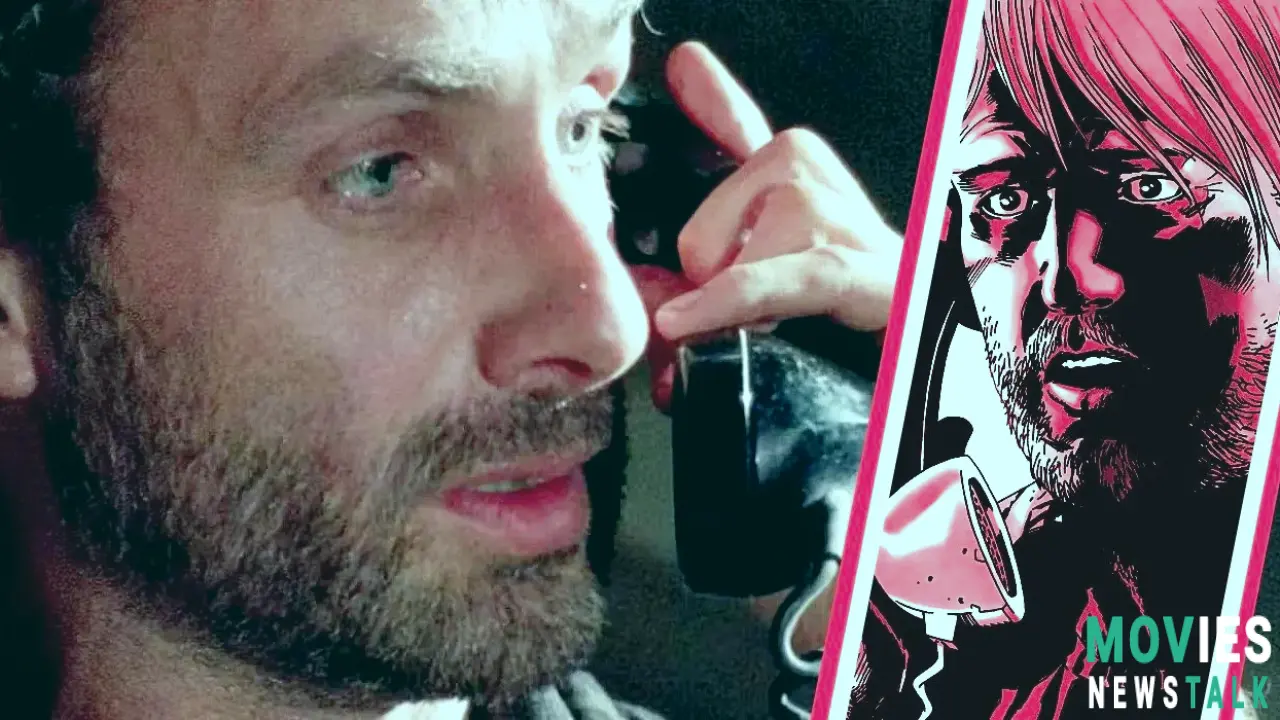Robert Kirkman Calls Out His Use Of 1 Recurring Narrative Device
Looking back on the run of the zombie comic series, The Walking Dead creator Robert Kirkman admitted that he might have resorted to a certain trope a little too often. However, Kirkman's liberal use of the "person-talks-to-inanimate-object" cliché can be defended for its artistic motivations, even if some examples from the series were more successful than others.
The Walking Dead Deluxe #91 – written by Robert Kirkman, with art by Charlie Adlard, rendered in full color for the first time – features annotations from the author, reflecting on his career-defining opus. Kirkman has at times been notably critical of his work upon returning to The Walking Dead; in this case, he gently chided himself for resorting to a particular narrative technique too often.
The Walking Dead's Characters Needed A Way To Express Themselves
It is worth taking a look at the franchise's use of the "talking-to-an-object" trope in more detail, in the context of Kirkman's comments. Though he describes the repeated occurrences of the technique "a bit much," it is important to consider both the "why" and "how" of the trope's appearance in The Walking Dead. In comics, dialogue is a primary, driving force – and because the comic series contained minimal narration, and almost no character interiority, at times, Robert Kirkman needed to find ways to have the characters express themselves, without having them talk to other characters.
In any piece of fiction –but especially one that is action-oriented, and drama-forward, like The Walking Dead – it is essential to have active, rather than passive characters. To whatever extent he used the device, and however effective each instance was, Robert Kirkman having his characters talk to inanimate objects was a way of having them actively express themselves, while engaging with the world around them.
Kirkman's Insights Into The Walking Dead Add Depth To The "Deluxe" Reprint
The Walking Dead was saturated in death, and its characters were in constant mourning; in other words, it makes a certain degree of sense that similar coping mechanisms would be portrayed in parallel. This is one reason that Robert Kirkman's repeated use of the narrative device can be defended. More than just offering a reason for a character to monologue, it gave them space to forward their emotional arcs in particular ways, to process their traumas and develop as more complex figures, in ways that their dialogue with other characters might not.
It is understandable that over a decade later, and with much more creative experience under his belt, Robert Kirkman has developed a more refined authorial sense. Applying this to his own work in The Walking Dead – the series that elevated him to one of the foremost comic book creators in contemporary pop culture – has been the most fascinating part of The Walking Dead Deluxe. However, readers should interpret his analysis of his own earlier creative decision in the same way they would the creative decisions on the page themselves.
Kirkman's Take On Walking Dead Shouldn't Color Readers' Opinions Too Much
As grateful as fans should be for it, Kirkman's reading of The Walking Dead should be looked at not as authoritative, but as the opinion of a highly-qualified expert. This distinction is critical; it is incredibly valuable to readers – and emerging creators who look up to Robert Kirkman – to have him offer such a high-level dissection of his own creative process, and its result. At the same time, just as with any author, his statements should not always override individual readers' interpretations of his work.
Ultimately, it is up to readers to decide for themselves if the "character talks to inanimate object" trope was overused in The Walking Dead, or if each instance justified itself in its own way. Given the opportunity, Robert Kirkman might not have employed this narrative device as many times as he did. However, if he hadn't at the time, he might not have arrived at a scene like the one in which Rick talks to Lori on the phone, which holds up as one of The Walking Dead's most heartbreaking moments.

